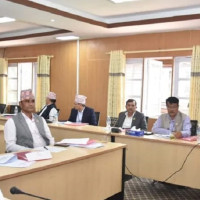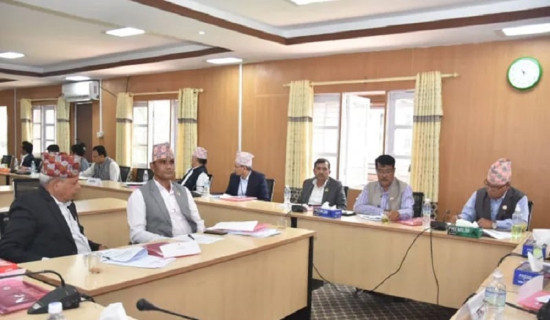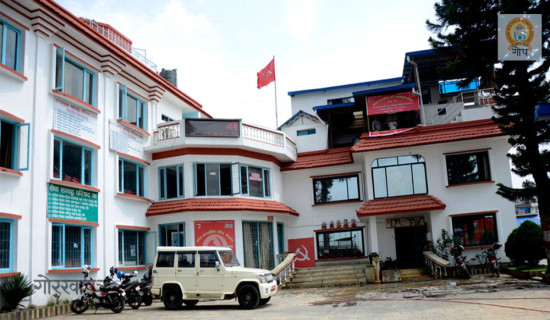- Sunday, 3 August 2025
Youth from Jogi community reviving the ‘Feri’ practice
BY HARI PRASAD KOIRALA
Urlabari, Oct. 30: Young people from the minority Jogi community have returned to their ancestral occupation of performing ‘Feri’ (blowing animal horn in each house by visiting villages in the nighttime) rituals.
Once marginalised, the Jogis used to visit Nepali-speaking villages in India to conduct the ritual and return home after a month. They used to travel to villages in Sikkim, Darjeeling and Kalimpong in India to perform Feri.
Around 60 families from Siddhapokhari in Sankhuwasabha, who later resettled in Kanepokhari-7 of Morang district, used travel to India to perform ‘Feri’. One local, Durgalal Jogi, said, "Our ancestral occupation is performing 'Feri.' During the conflict period, travel at night was restricted and for nearly a decade, we could not perform the ritual, which must be done at night."
The Jogis also perform a ritual to honour the land in the months of Kartik (mid-October to mid-November) and Chaitra (mid-March to mid-April), hoping to protect it from disease and misfortune. Each year, on the day after Chandi Purnima, they conduct a ritual to honour their clan deity at a nearby crossroad, intended to prevent diseases like cholera. However, during the conflict period, the tradition of travelling to blow the ceremonial horn called ‘barath ko singha’ (Feri), was disrupted. To perform the ‘Feri,’ the Jogis travel from house to house silently, blowing the horn without speaking a word.
After the conflict period, the younger generation began to view the Jogi community as beggars and many of them were drawn more towards foreign employment or alternative jobs in place of continuing the job of blowing horn in the night. Some even pursued other professions.
However, times have changed. As the government reached each village, programmes were introduced to preserve the traditions of every ethnic group and religion. Today, even the younger generation is returning to the practice of ‘Feri.’ Tek Bahadur Jogi, 33, from Kanepokhari-7, said, "Blowing the Feri twice a year is believed to protect the family from evil spirits, diseases and misfortune, bringing peace and harmony into the household."
Now, society seems to be returning to its roots, with people reverently offering donations when the Jogis come in the month of Kartik, asking them to return in Chaitra.
He said younger people today were less familiar with traditional donation customs. In the past, people would offer rice, money, lentils, vegetables, salt, turmeric and oil to the Jogis. But, today’s youth are less inclined to continue these practices.
Not only Tek Bahadur, but 50-year-old Mohan Bahadur Jogi, who returned after 11 years abroad, observed how society has changed. Previously, the Jogis were seen as beggars, but now people invite them and willingly offer donations. "In the past, the alms collected in Kartik and Chaitra would sustain us for the year. Now, instead of rice, lentils, vegetables and oil, people tend to offer money and clothes," he said.
Mohan, originally from Fedap in Tehrathum and now living in the Tarai, travels to places like Letang, Pathari and Madhumalla to perform the ‘Feri’ ritual.
Every male member of the Jogi community is traditionally required to perform the ‘Feri’ ritual at least once in his lifetime, regardless of his education or occupation. Thus, no matter their level of education or employment, all male Jogis are expected to perform the ‘Feri’ ritual at least once.














-original-thumb.jpg)
